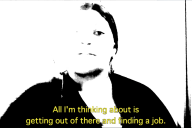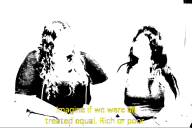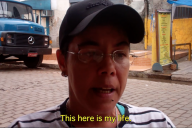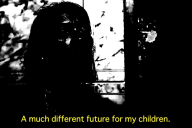It’s been almost five months since sex worker Joyce was assaulted, robbed, raped, and – after she testified – kidnapped by police officers in Rio de Janeiro. When I spoke with her in hiding during World Cup about whether she regretted speaking out about the violence, she told me, “It’s too late now. I’m already an activist.
Sage words. Over the last few months Joyce has emerged as a fierce advocate of civil rights for herself and thousands of her colleagues who choose sex work to support themselves. Her fight is not for legalization – sex work is already a federally recognized occupation by Brazil’s Ministry of Work. Her fight is for her right to work without being harassed, extorted and assaulted by the police, and for the police who assaulted, robbed and raped her and her colleagues in Niterói to be brought to justice.
There’s just one problem. Joyce refuses to identify as a victim. She identifies as a prostitute and an activist. And Brazil isn’t set up to help prostitute activists. In this video, prepared for the Second Annual International Conference on Law Enforcement and Public Health in Amsterdam, Joyce explains how Rio’s State Services for Women Victims of Violence, and state and federal level Human Rights Secretaries have all either ignored or denied her requests for support and protection on the grounds that she doesn’t meet their profile:
“Everywhere I went, everyone was telling me they had nothing to offer prostitutes.”
Next, the Federal Secretary of Human Rights denied her entry into a protection program for defenders of human rights.
“They affirmed I was a human rights activist but that it was too dangerous to protect me. Then they sent me to PROVITA, Brazil’s witness protection program. But I’d have to qualify myself as a victim and a witness and leave Rio to join it. I’d have to give up my activism. And give up my identity and my family. I would never be able to talk to my children again.
First, the program for human rights defenders said I met their profile 100%. But because of the danger they were sending me to witness protection. Witness protection told me I was 100% the profile for the human rights defenders program. But not the “victim” profile for the witness protection program.”
Joyce continues in hiding, unable to work, and is living entirely off the support of human rights activists and organizations, including Frontline Defenders, Global Justice and federal deputy Jean Wyllys. She told me the physical violence she suffered in the hands of police pales in comparison to the institutional violence she’s suffered seeking help from her government.
Read more about Joyce’s case:
- The Observatory of Prostitution’s Preliminary World Cup Report of World Cup findings includes a detailed section of the police raids and human rights abuses in Niterói.
- Brazil’s Ugly Sex Worker Crackdown – Rio’s brutal pre-World Cup sex crackdowns in Rio and Niterói, and the ensuing protests. For CityLab.com.
- Are Rio’s World Cup Sex Raids for Real or Just for Show? — Inside the Copacabana bar police raided hours before the World Cup kickoff on June 12. For VICE News.
- On the Run during World Cup with Brazil’s Most Wanted Prostitute — An interview with the only victim of the Niterói raids to testify. For VICE News.
- Panic Attack: What actually happens when cities crack down on sex trafficking during large, international sporting events? — A (non)history of mega-sports and sex trafficking. For GOOD Magazine.






